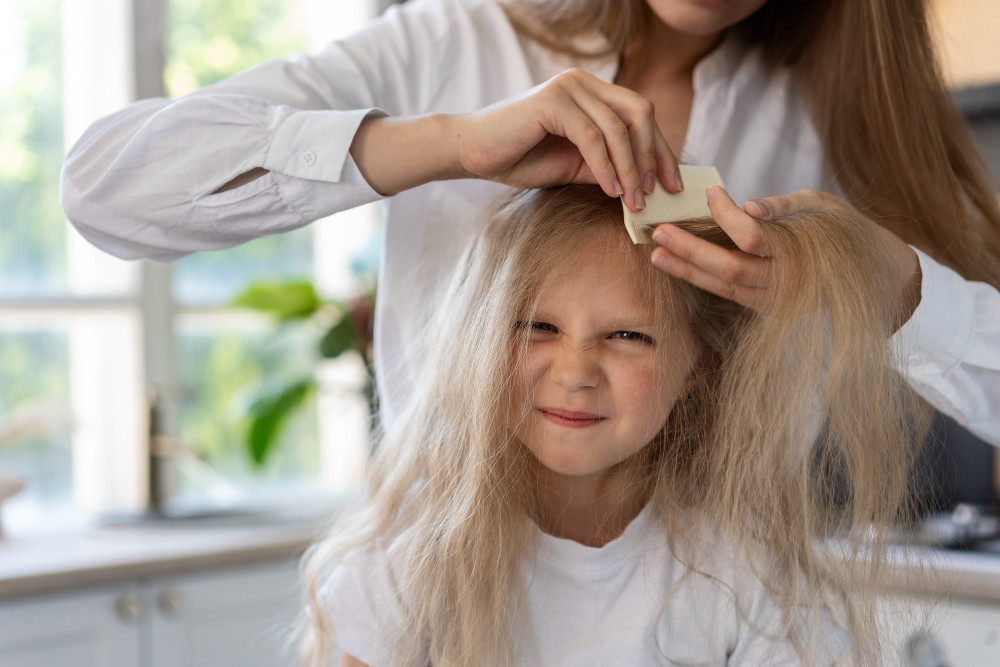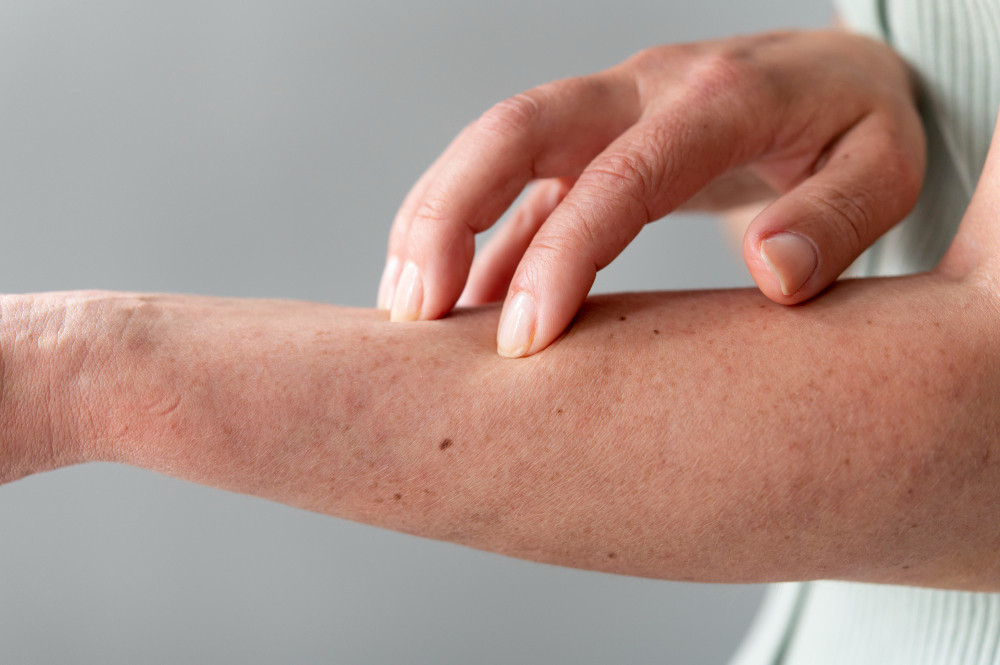Ringworm, also known as tinea, typically manifests on the hands, feet, or in locations where the skin folds and retains moisture, such as the crotch. Nevertheless, in certain cases, ringworm, or tinea, can also manifest on the scalp. Ringworm on the scalp can be experienced by anyone, although it is more commonly found in children. Find out what causes ringworm and how to treat it by reading this review.
What is ringworm?
Ringworm is a fungal infection that specifically affects the scalp. This condition is referred to as ringworm because of the formation of a circular region on the skin with thicker borders, resembling a worm, caused by the infecting fungus. Tinea capitis, also referred to as ringworm, is a medical condition that can impact the scalp and hair shafts, resulting in an itchy and scaly scalp.
Ringworm: What Causes It and How It Spreads
Dermatomycetes are the fungus responsible for scalp fungus. Perspiration provides the ideal environment for fungi to grow since they prefer warm, humid places. Dead tissue, like hair, nails, and skin, can also be an ideal environment for fungi.
Children are more susceptible to ringworm growth and transmission. A few examples of ringworm infections are:
- Transmission from person to person: An infected person's ringworm can infect others through skin-to-skin contact
- Transmission from the animal to the human species: Direct contact with ringworm-infected animals, such as dogs or cats, can result in the transmission of the ringworm infection to people. You must be careful while handling wild animals since ringworm may not exhibit symptoms
- From materials to people: Direct contact with ringworm-contaminated objects or surfaces can spread the fungus to human skin. Sharing combs, comforters, and towels with someone with ringworm can potentially spread it
Read more: Often Considered The Same, This Is Different Between Kudis And Kurap
Ringworm on the Scalp: How to Spot the Signs
The most frequent scalp symptom of ringworm is itching. Another indicator is that the hair shaft near the scalp breaks easily and becomes scaly, red, or bald. Additionally, black spots appear in the broken hair area. This region can spread if not treated immediately.
Additional symptoms to be aware of include:
- Fragile hair
- Itchy and painful scalp
- Enlarged lymph nodes
- Low-grade fever
Severe cases of ringworm can cause the scalp to develop crusty swelling, known as kerion, and rotting. This can lead to irreversible hair loss and scarring.
Read more: Psoriasis Care Tips On Head Skin
What Are the Best Practices for Preventing and Treating Ringworm on the Scalp?
Scalp ringworm can be effectively treated by providing potent oral antifungal medications. Certain treatments may need to be used for a duration of at least 6 weeks in order to stimulate hair regrowth in the area affected by ringworm, which can result in temporary baldness or hair loss on the scalp. Doctors may also prescribe specialized shampoos to fight the growth and dissemination of fungal infections in surrounding areas. With proper treatment, ringworm wounds heal without scars, and hair grows normally.
Although not dangerous, scalp ringworm can make children feel self-conscious and disturb their activities. Some ringworm prevention strategies are:
- Clean and routinely wash your hair
- Clean and dry the scalp
- Avoid touching ringworm-infected animals
- Avoid sharing personal items with other people
The scalp is one of the several moist places of the body that can be a breeding ground for ringworm. Your children should be examined to see whether or not they are experiencing signs of ringworm on the scalp or if they are experiencing an itchy scalp. You can visit a doctor or use the consultation feature in the Ai Care application.
Looking for more information about other diseases? Click here!
- dr. Alvidiani Agustina Damanik
Bergen, T. (2023). Ringworm of the Scalp (Tinea Capitis). Available from: https://www.healthline.com/health/tinea-capitis
Mayo Clinic. Ringworm (Scalp). Available from: https://www.mayoclinic.org/diseases-conditions/ringworm-scalp/symptoms-causes/syc-20354918
Kramer, O. (2019). What to know about tinea capitis. Available from: https://www.medicalnewstoday.com/articles/326665











